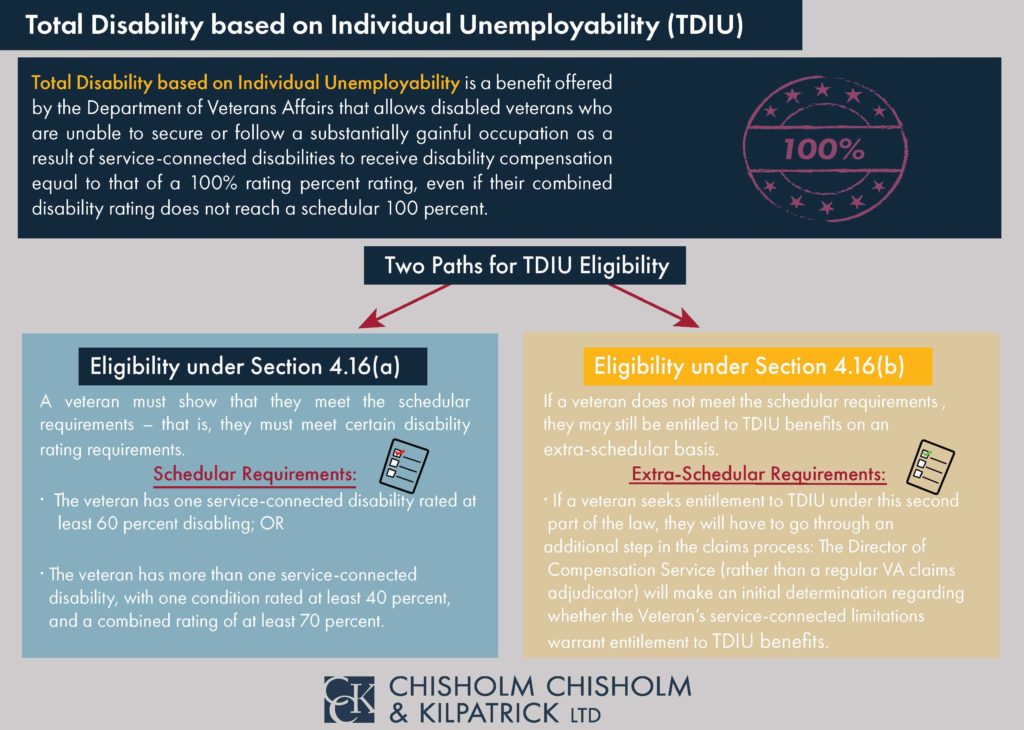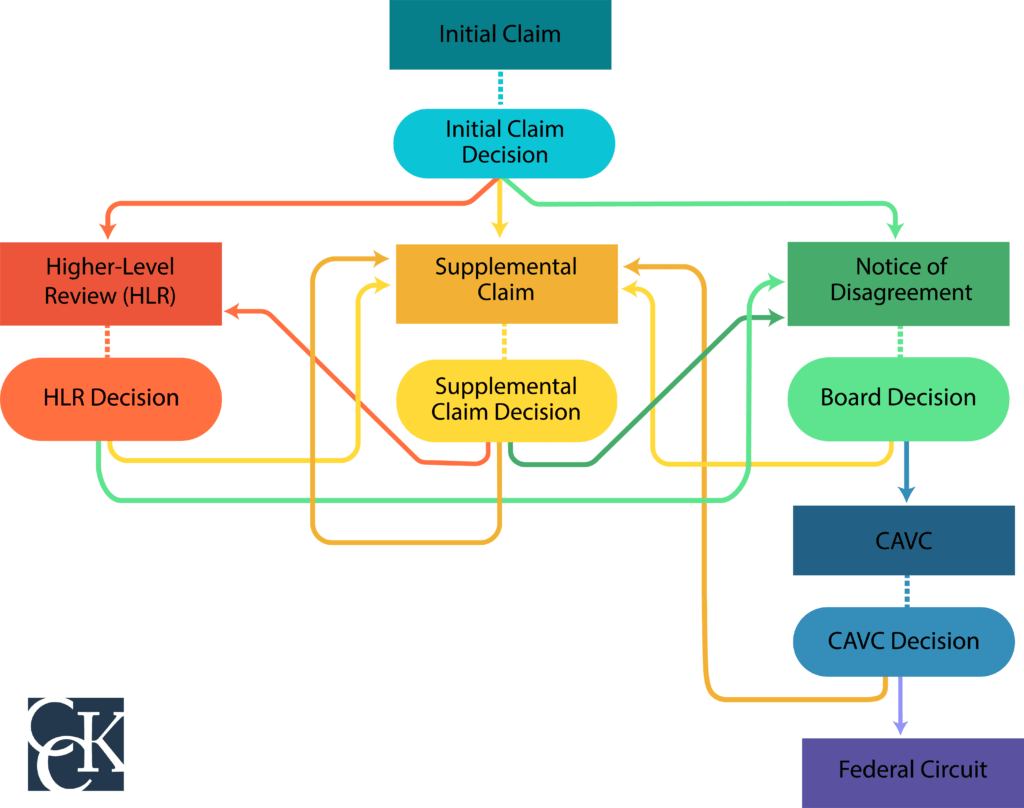How to Get VA Disability Compensation
If you are a U.S. Military veteran with a service-related injury or illness, you may qualify for VA disability compensation. The U.S. Department of Veterans Affairs (VA) offers monthly tax-free payments to veterans suffering from conditions connected to or aggravated by their military service.
If you filed for disability compensation but VA denied you benefits, Chisholm Chisholm & Kilpatrick LTD may be able to help you secure the compensation you deserve.
Reach out to CCK today for a complimentary case review.
VA Disability Compensation Explained
VA disability benefits are intended to compensate veterans and their families for injuries incurred during service. The amount of compensation a veteran receives depends on the nature of their disability and the severity of its symptoms.
VA compensates veterans who establish service connection, which typically involves proving these three elements:
- An event, injury, or illness occurring during service;
- A current diagnosis of a disabling condition by a medical professional; and
- A link, or “nexus,” between the in-service event and current disability.
Once service connection is established, VA will assess how disabling the condition is (using 38 CFR Part 4, Schedule for Rating Disabilities) and assign a disability rating. Disability ratings range from 0 to 100 percent and increase in severity by increments of 10—the higher the rating, the higher the monthly payments.
If a veteran has multiple conditions, VA will calculate a combined disability rating using VA math, which will determine the total monthly compensation amount.
Combined Disability Ratings & VA Math
While it may seem like calculating a combined disability rating requires only simple addition, it quickly turns into calculating percentages of percentages. To simplify this confusing and challenging process, CCK has developed a VA disability calculator.
This calculator also accounts for additional factors, such as:
- Qualifying dependents;
- Rating considerations such as the bilateral factor;
- Aid and Attendance (A&A); and
- Any additional benefits that can increase the monthly payments a veteran receives.

Total Disability Based on Individual Unemployability (TDIU)
Another form of VA compensation is TDIU, or Total Disability based on Individual Unemployability. This benefit, which offers compensation equal to a 100 percent rate, is intended for veterans who are unable to work due to a service-connected condition.
To be eligible for TDIU, veterans must provide evidence that their service-connected condition prevents them from obtaining and maintaining substantially gainful employment. Also, they must have either:
- One service-connected condition rated 60 percent or higher; or
- Two or more service-connected conditions with a combined rating of 70 percent or higher, one of which is rated at least 40 percent.
Veterans who do not meet these requirements can apply for TDIU on an extraschedular basis.
2021 VA Disability Compensation Rates
As of December 1st, 2024, the VA disability rate benefit amounts are as follows:
- 0 percent disability rating: $0.00 per month
- 10 percent disability rating: $175.51 per month
- 20 percent disability rating: $346.95 per month
- 30 percent disability rating: $537.42 per month
- 40 percent disability rating: $774.16 per month
- 50 percent disability rating: $1,102.04 per month
- 60 percent disability rating: $1,395.93 per month
- 70 percent disability rating: $1,759.19 per month
- 80 percent disability rating: $2,044.89 per month
- 90 percent disability rating: $2,297.96 per month
- 100 percent disability rating: $3,831.30 per month
Additional Veteran’s Compensation for Dependents
VA also offers additional compensation to disabled veterans with one or more qualifying dependents who have a combined disability rating of 30 percent or higher. Qualifying dependents include:
- A spouse
- Dependent parents
- Children under the age of 18
- Children between the age of 18 and 23 who are in school
To determine your monthly benefit if you have qualifying dependents, please reference the 2021 VA disability pay chart below:
How to File a VA Disability Claim
There are several ways to file a claim for VA compensation, including by mail, online, in person, or with the assistance of a trained professional, such as an accredited veterans’ representative.
Veterans should fill out the Application for Disability Compensation and Related Compensation Benefits—VA Form 21-526EZ.
It is also important to gather and submit any documents that can substantiate your claim and prove service connection. VA is required to assist you in gathering evidence; however, if you provide supporting documents yourself it may speed up the process.
Appealing a VA Decision
Even if you submit all the necessary evidence, VA may still deny you benefits. If this occurs, there are three ways to file a VA compensation appeal under the Appeals Modernization Act (AMA):
- Request a Higher-Level Review of your current claim by a senior VA employee;
- Submit new and relevant evidence as part of a Supplemental Claim; or
- File a Notice of Disagreement with the Board of Veterans’ Appeals.
An accredited attorney or representative at CCK may be able to help you determine which appeal lane best fits your situation.
How CCK Can Help You Win VA Compensation
If VA denied your claim for disability compensation, Chisholm Chisholm & Kilpatrick LTD may be able to help. The experienced and knowledgeable veterans’ advocates and attorneys at CCK can assist you in gathering evidence and may even be able to file an appeal on your behalf.
Call CCK today at 800-544-9144 for a free case evaluation.

